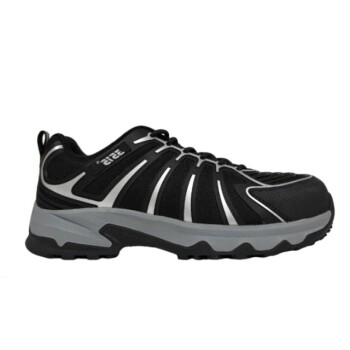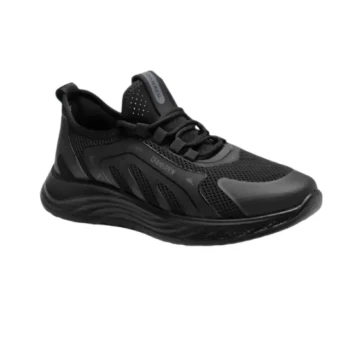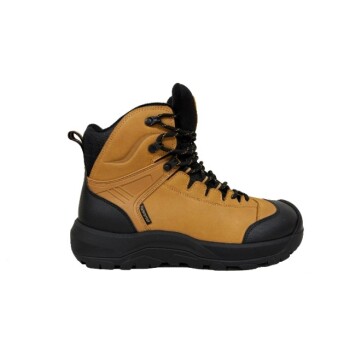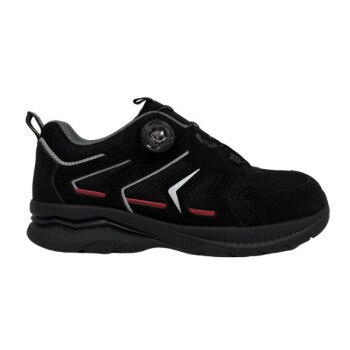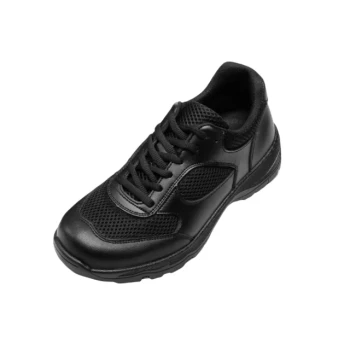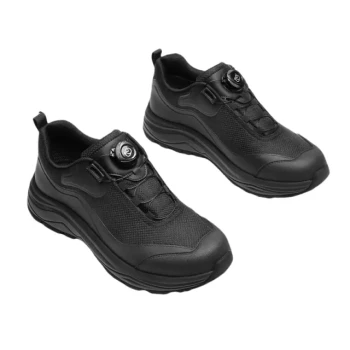When selecting a sole for demanding applications, you need a material engineered to excel across multiple performance metrics. The most recognized solution that delivers excellent performance in abrasion resistance, cementability, and slip resistance is a high-quality vulcanized rubber compound, famously exemplified by the brand Vibram.
While many materials exist, specialized rubber compounds represent the gold standard for balancing extreme durability (abrasion resistance) with reliable traction (slip resistance) and the ability to be securely bonded to footwear (cementability).
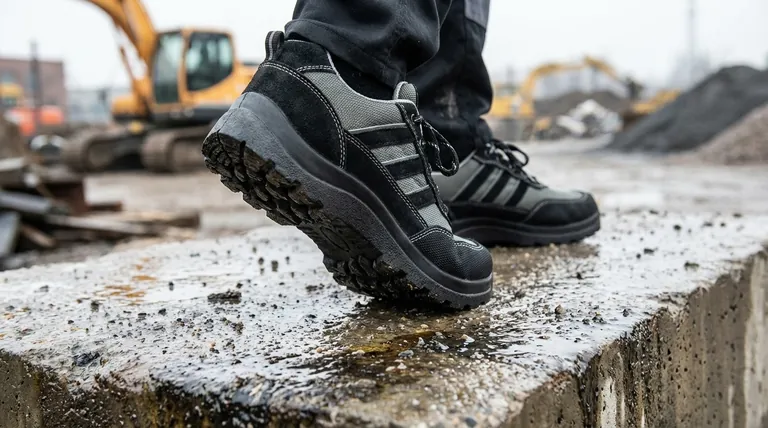
What Defines a High-Performance Sole?
Understanding the core properties the user asked about—abrasion, cement, and slipping—is key to appreciating why certain materials are superior. These three factors form the foundation of a reliable, safe, and long-lasting shoe.
Abrasion Resistance (Durability)
This refers to the sole's ability to withstand wear from contact with rough surfaces. A sole with high abrasion resistance will not wear down quickly, maintaining its tread and protective structure for longer.
Dense, high-quality rubber compounds are specifically formulated to resist being worn away by friction, which is crucial for footwear used on pavement, rock, or industrial flooring.
Cementability (Construction)
In footwear, "cement" refers to the industrial adhesives used to bond the outsole to the midsole and upper. A material with good "cementability" can be properly prepared to form a strong, permanent bond.
This is a critical, often overlooked feature. Poor bonding leads to delamination—the sole peeling away from the shoe—which is a catastrophic failure in high-stakes environments.
Slip Resistance (Traction)
This is the sole's ability to maintain grip and prevent falls. It's a function of two things: the material's inherent coefficient of friction and the physical design of the tread pattern.
High-performance rubber provides excellent friction on a variety of surfaces, both wet and dry, while engineered lugs and channels in the tread help shed water and debris.
Vibram: The Benchmark in Sole Technology
The references specifically name Vibram because it has become the industry benchmark for the properties you require. However, it's important to understand what Vibram is.
More Than a Single Material
Vibram is not a single material but a brand that specializes in creating dozens of different high-performance rubber outsole compounds. Each compound is engineered for a specific purpose, from mountaineering to military applications.
An Engineered Balance
The company's success comes from its ability to expertly balance the trade-offs between different properties. They create compounds that are extremely durable and abrasion-resistant while still providing exceptional grip.
Understanding the Trade-offs
No single sole is perfect for every possible situation. The choice of material always involves balancing competing priorities.
Grip vs. Durability
This is the classic trade-off. A softer rubber compound will often provide superior grip, especially on smooth, wet surfaces, because it can conform better to microscopic imperfections. However, it will wear down much faster.
Conversely, a harder, denser rubber compound will last significantly longer but may offer less traction in certain conditions.
Environmental Specialization
While a high-end rubber compound like Vibram is an excellent all-around choice, some environments demand specialized materials.
For workplaces with oil, solvents, or chemicals, materials like nitrile or polyurethane are superior. These compounds are specifically formulated for oil resistance, preventing the sole from degrading and losing its integrity, a weakness of some standard rubbers.
Making the Right Choice for Your Goal
To select the best sole, match the material's strengths to your primary need.
- If your primary focus is maximum durability and all-around traction for hiking, work, or tactical use: Look for footwear featuring a sole from a specialist in high-performance rubber compounds, such as Vibram.
- If your primary focus is safety in oily, greasy, or chemical-rich environments: Prioritize soles made from specifically engineered materials like nitrile rubber or polyurethane that offer superior oil resistance.
- If your primary focus is resoling existing footwear: Ensure the replacement sole is known for excellent cementability to guarantee a strong, reliable bond that will not fail under stress.
Ultimately, choosing the right sole is about matching the material's engineered properties to the demands of your environment.
Summary Table:
| Sole Material | Best For | Key Properties |
|---|---|---|
| Vulcanized Rubber (e.g., Vibram) | Hiking, Work, Tactical Use | Superior abrasion resistance, excellent cementability, reliable slip resistance |
| Nitrile / Polyurethane | Oily, Greasy, Chemical Environments | Superior oil & chemical resistance, good slip resistance on slick surfaces |
Need High-Performance Soles for Your Brand or Bulk Order?
As a large-scale manufacturer, 3515 produces a comprehensive range of footwear for distributors, brand owners, and bulk clients. Our production capabilities encompass all types of shoes and boots, and we can integrate premium, durable sole materials like specialized rubber compounds to meet your exact performance requirements.
Let's discuss how we can enhance your product line with soles built for durability, safety, and reliability.
Contact our experts today to get a quote
Visual Guide
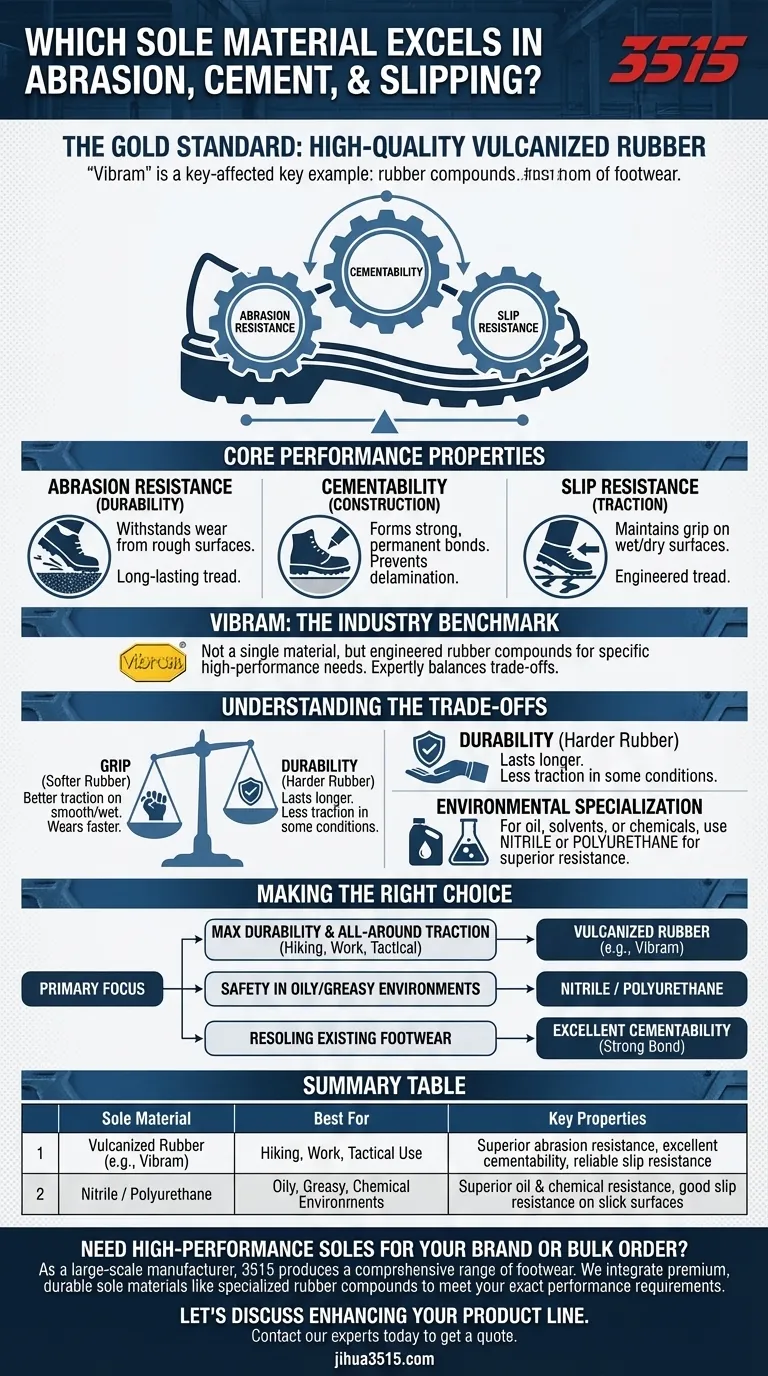
Related Products
- Durable Rubber-Soled Utility Shoes for Wholesale & Custom Brand Manufacturing
- Safety Footwear Wholesale Manufacturer for Custom OEM/ODM Production
- Premium KPU Athletic Safety Shoes for Wholesale
- Premium Flame-Retardant Waterproof Safety Boots and Shoes
- Wholesale Breathable & Cushioned Training Shoes Custom Factory Production
People Also Ask
- Why should we wear rubber soled shoes? Unlock Superior Safety and Durability
- What is vulcanized rubber and why is it used in products? The Key to Durable, Flexible Footwear
- What historical breakthrough in 1844 contributed to modern shoe sole manufacturing? The Vulcanization Revolution
- What are the main applications of vulcanized rubber? Unlock Durability for Tires, Footwear & More
- What makes natural rubber provide excellent traction and grip? Unlocking Superior Performance with Molecular Science


